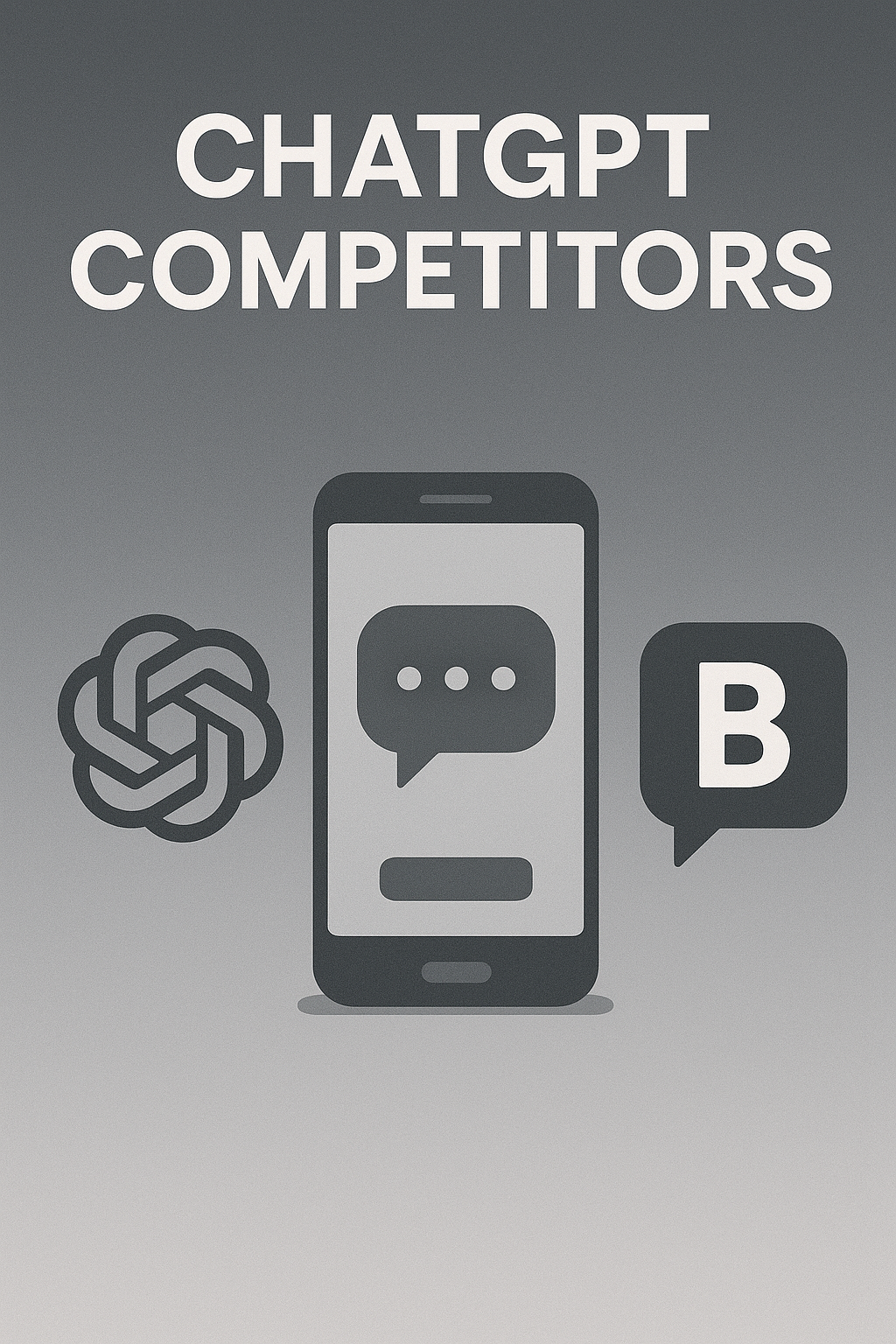Since its launch, ChatGPT has been the poster child for AI-powered conversation. But in 2025, the AI landscape is far from one-dimensional. With rapid innovation, powerful new models, and specialized platforms, there’s now an entire ecosystem of ChatGPT competitors—each offering unique strengths depending on your goals, whether you’re coding, writing content, researching, or automating workflows.
If you’re wondering whether ChatGPT is still the best fit for your needs—or curious about what else is out there—this guide will introduce you to the top ChatGPT alternatives in 2025, their pros, cons, and standout features.
Why Look Beyond ChatGPT?
While ChatGPT remains a market leader with its GPT-4o model, users often explore alternatives to:
- Access different AI capabilities (e.g., image generation, music, coding, research)
- Avoid paywalls or usage limits
- Get tools tailored to specific industries
- Compare UI/UX preferences or integrations with other platforms
Top ChatGPT Competitors in 2025
1. Claude 3 by Anthropic
Best for: Ethical AI, creative writing, and summarization
Overview: Claude 3 has earned a strong reputation for its conversational flow, safety controls, and long memory. It’s particularly effective in summarizing large documents and engaging in thoughtful, nuanced discussions.
Pros:
- Long context window (over 100K tokens)
- High-quality writing and tone consistency
- Strong safety and alignment focus
Cons:
- May lack some tool integrations compared to ChatGPT
- Not ideal for heavy coding tasks
Notable Features:
- Deep understanding of context
- Friendly, less robotic tone
- Business tier supports advanced document workflows
2. Gemini by Google (formerly Bard)
Best for: Google Workspace users and research-heavy tasks
Overview: Google’s Gemini has matured significantly in 2025. Seamlessly integrated with Google Docs, Gmail, and Sheets, it excels at handling real-time information and conducting web-connected research.
Pros:
- Real-time web access
- Native integration with Google services
- Solid factual accuracy
Cons:
- Still improving creative writing skills
- Some privacy concerns among users
Notable Features:
- Multi-modal input (text, images, video)
- Workspace automation tools
- Research-based assistant mode
3. Perplexity AI
Best for: Real-time search and fact-checking
Overview: Perplexity stands out as an AI-powered search engine rather than a traditional chatbot. It answers queries with cited sources and updates in real time—perfect for news, academic references, and current events.
Pros:
- Sources every response
- Fast and minimalistic interface
- Great for fact-checking and up-to-date info
Cons:
- Not designed for long conversations
- Limited creative or emotional tone
Notable Features:
- Source links embedded in every answer
- “Copilot” mode for deep research
- No login required for basic use
4. Microsoft Copilot
Best for: Office productivity and enterprise users
Overview: Integrated across Microsoft 365 apps, Copilot boosts productivity by drafting emails in Outlook, analyzing data in Excel, and summarizing meetings in Teams. It’s powered by GPT and other AI models.
Pros:
- Deep integration with Office tools
- Enterprise-grade security
- Saves time on daily tasks
Cons:
- Requires Microsoft 365 subscription
- Limited creative flexibility
Notable Features:
- Contextual understanding of your documents
- Enterprise compliance features
- Integrated task suggestions and workflow automation
5. Mistral AI (Open-Source Models)
Best for: Developers and privacy-focused users
Overview: Mistral is gaining popularity among tech-savvy users for its fast, open-source language models. It’s ideal for local deployment, customizable AI apps, and transparency.
Pros:
- Fully open-source models
- Low-latency responses
- Easy integration into custom systems
Cons:
- Not a plug-and-play solution for casual users
- No polished user interface
Notable Features:
- Lightweight models (e.g., Mistral 7B, Mixtral)
- Community-driven development
- Local or cloud-based deployment
6. You.com AI Chat
Best for: AI search with productivity features
Overview: You.com combines AI conversation with a search engine interface. It lets users write, code, and search simultaneously, offering tools like AI writing templates, image generation, and summarization.
Pros:
- Combines chat + search + tools in one app
- Fast and visual interface
- No login required for many features
Cons:
- Sometimes less accurate than ChatGPT or Claude
- UI can feel cluttered
Notable Features:
- Multimodal tools (write, code, image, search)
- Side-by-side web results
- Customizable tool interface
Choosing the Right AI Tool for You
| Use Case | Best AI Tool |
| Creative writing & tone | Claude 3 |
| Research & real-time data | Gemini or Perplexity |
| Office productivity | Microsoft Copilot |
| Developer use & privacy | Mistral AI |
| Everyday chat & flexibility | ChatGPT or You.com |
Final Thoughts
2025 is a golden age for AI variety. While ChatGPT remains a top-tier choice with its conversational finesse and powerful tools, its competitors bring their own strengths to the table. Whether you’re looking for ethical design (Claude), productivity boosts (Copilot), or research depth (Perplexity), the best AI tool depends on how and why you’re using it.
Trying out different platforms—many of which offer free plans—is the best way to find the right match. The AI assistant you choose should not only understand your queries, but also help you work smarter, write better, and think faster.









